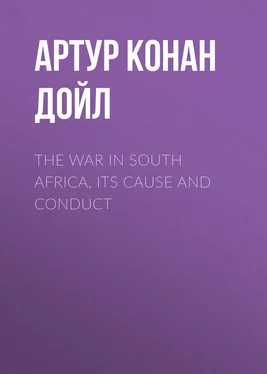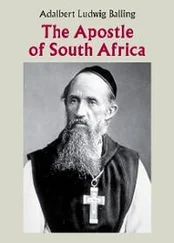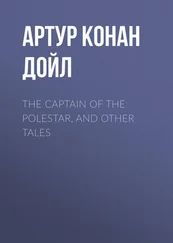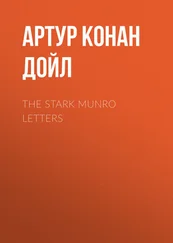Артур Дойл - The War in South Africa, Its Cause and Conduct
Здесь есть возможность читать онлайн «Артур Дойл - The War in South Africa, Its Cause and Conduct» — ознакомительный отрывок электронной книги совершенно бесплатно, а после прочтения отрывка купить полную версию. В некоторых случаях можно слушать аудио, скачать через торрент в формате fb2 и присутствует краткое содержание. Жанр: foreign_antique, foreign_prose, на английском языке. Описание произведения, (предисловие) а так же отзывы посетителей доступны на портале библиотеки ЛибКат.
- Название:The War in South Africa, Its Cause and Conduct
- Автор:
- Жанр:
- Год:неизвестен
- ISBN:нет данных
- Рейтинг книги:5 / 5. Голосов: 1
-
Избранное:Добавить в избранное
- Отзывы:
-
Ваша оценка:
- 100
- 1
- 2
- 3
- 4
- 5
The War in South Africa, Its Cause and Conduct: краткое содержание, описание и аннотация
Предлагаем к чтению аннотацию, описание, краткое содержание или предисловие (зависит от того, что написал сам автор книги «The War in South Africa, Its Cause and Conduct»). Если вы не нашли необходимую информацию о книге — напишите в комментариях, мы постараемся отыскать её.
The War in South Africa, Its Cause and Conduct — читать онлайн ознакомительный отрывок
Ниже представлен текст книги, разбитый по страницам. Система сохранения места последней прочитанной страницы, позволяет с удобством читать онлайн бесплатно книгу «The War in South Africa, Its Cause and Conduct», без необходимости каждый раз заново искать на чём Вы остановились. Поставьте закладку, и сможете в любой момент перейти на страницу, на которой закончили чтение.
Интервал:
Закладка:
That is a fair statement of the Boer position, and at first sight an impartial man might say that there was a good deal to say for it; but a closer examination would show that, though it might be tenable in theory, it is unjust and impossible in practice.
In the present crowded state of the world a policy of Thibet may be carried out in some obscure corner, but it cannot be done in a great tract of country which lies right across the main line of industrial progress. The position is too absolutely artificial. A handful of people by the right of conquest take possession of an enormous country over which they are dotted at such intervals that it is their boast that one farmhouse cannot see the smoke of another, and yet, though their numbers are so disproportionate to the area which they cover, they refuse to admit any other people upon equal terms, but claim to be a privileged class who shall dominate the new-comers completely. They are outnumbered in their own land by immigrants who are far more highly educated and progressive, and yet they hold them down in a way which exists nowhere else upon earth. What is their right? The right of conquest. Then the same right may be justly invoked to reverse so intolerable a situation. This they would themselves acknowledge. 'Come on and fight! Come on!' cried a member of the Volksraad when the franchise petition of the Uitlanders was presented. 'Protest! Protest! What is the good of protesting?' said Kruger to Mr. W. Y. Campbell; 'you have not got the guns, I have.' There was always the final court of appeal. Judge Creusot and Judge Mauser were always behind the President.
Again, the argument of the Boers would be more valid had they received no benefit from these immigrants. If they had ignored them they might fairly have stated that they did not desire their presence. But even while they protested they grew rich at the Uitlanders' expense. They could not have it both ways. It would be consistent to discourage him and not profit by him, or to make him comfortable and build the State upon his money; but to ill-treat him and at the same time grow strong by his taxation must surely be an injustice.
And again, the whole argument is based upon the narrow racial supposition that every naturalised citizen not of Boer extraction must necessarily be unpatriotic. This is not borne out by the examples of history. The new-comer soon becomes as proud of his country and as jealous of her liberty as the old. Had President Kruger given the franchise generously to the Uitlander, his pyramid would have been firm upon its base and not balanced upon its apex. It is true that the corrupt oligarchy would have vanished, and the spirit of a broader, more tolerant freedom influenced the counsels of the State. But the republic would have become stronger and more permanent with a population who, if they differed in details, were united in essentials. Whether such a solution would have been to the advantage of British interests in South Africa is quite another question. In more ways than one President Kruger has been a good friend to the Empire.
At the time of the Convention of Pretoria (1881) the rights of burghership might be obtained by one year's residence. In 1882 it was raised to five years, the reasonable limit which obtains both in Great Britain and in the United States. Had it remained so, it is safe to say that there would never have been either an Uitlander question or a war. Grievances would have been righted from the inside without external interference.
In 1890 the inrush of outsiders alarmed the Boers, and the franchise was raised so as to be only attainable by those who had lived fourteen years in the country. The Uitlanders, who were increasing rapidly in numbers and were suffering from the formidable list of grievances already enumerated, perceived that their wrongs were so numerous that it was hopeless to have them set right seriatim, and that only by obtaining the leverage of the franchise could they hope to move the heavy burden which weighed them down. In 1893 a petition of 13,000 Uitlanders, couched in most respectful terms, was submitted to the Raad, but met with contemptuous neglect. Undeterred, however, by this failure, the National Reform Union, an association which was not one of capitalists, came back to the attack in 1894. They drew up a petition which was signed by 35,000 adult male Uitlanders, as great a number probably as the total Boer male population of the country. A small liberal body in the Raad supported this memorial and endeavoured in vain to obtain some justice for the new-comers. Mr. Jeppe was the mouthpiece of this select band. 'They own half the soil, they pay at least three-quarters of the taxes,' said he. 'They are men who in capital, energy, and education are at least our equals. What will become of us or our children on that day when we may find ourselves in a minority of one in twenty without a single friend among the other nineteen, among those who will then tell us that they wished to be brothers, but that we by our own act have made them strangers to the republic?' Such reasonable and liberal sentiments were combated by members who asserted that the signatures could not belong to law-abiding citizens, since they were actually agitating against the law of the franchise, and others whose intolerance was expressed by the defiance of the member already quoted, who challenged the Uitlanders to come out and fight. The champions of exclusiveness and racial hatred won the day. The memorial was rejected by sixteen votes to eight, and the franchise law was, on the initiative of the President, actually made more stringent than ever, being framed in such a way that during the fourteen years of probation the applicant should give up his previous nationality, so that for that period he would belong to no country at all. No hopes were held out that any possible attitude upon the part of the Uitlanders would soften the determination of the President and his burghers. One who remonstrated was led outside the State buildings by the President, who pointed up at the national flag. 'You see that flag?' said he. 'If I grant the franchise, I may as well pull it down.' His animosity against the immigrants was bitter. 'Burghers, friends, thieves, murderers, new-comers, and others,' is the conciliatory opening of one of his public addresses. Though Johannesburg is only thirty-two miles from Pretoria, and though the State of which he was the head depended for its revenue upon the goldfields, he paid it only three visits in nine years.
This settled animosity was deplorable, but not unnatural. A man imbued with the idea of a chosen people, and unread in any book save the one which cultivates this very idea, could not be expected to have learned the historical lessons of the advantages which a State reaps from a liberal policy. To him it was as if the Ammonites and Moabites had demanded admission into the twelve tribes. He mistook an agitation against the exclusive policy of the State for one against the existence of the State itself. A wide franchise would have made his republic firm-based and permanent. It was a minority of the Uitlanders who had any desire to come into the British system. They were a cosmopolitan crowd, only united by the bond of a common injustice. The majority of the British immigrants had no desire to subvert the State. But when every other method had failed, and their petition for the rights of freemen had been flung back at them, it was natural that their eyes should turn to that flag which waved to the north, the west, and the south of them – the flag which means purity of government with equal rights and equal duties for all men. Constitutional agitation was laid aside, arms were smuggled in, and everything prepared for an organised rising.
It had been arranged that the town was to rise upon a certain night, that Pretoria should be attacked, the fort seized, and the rifles and ammunition, used to arm the Uitlanders. It was a feasible device, though it must seem to us, who have had such an experience of the military virtues of the burghers, a very desperate one. But it is conceivable that the rebels might have held Johannesburg until the universal sympathy which their cause excited throughout South Africa would have caused Great Britain to intervene. Unfortunately they had complicated matters by asking for outside help. Mr. Cecil Rhodes was Premier of the Cape, a man of immense energy, and one who had rendered great services to the empire. The motives of his action are obscure – certainly, we may say that they were not sordid, for he has always been a man whose thoughts were large and whose habits were simple. But whatever they may have been – whether an ill-regulated desire to consolidate South Africa under British rule, or a burning sympathy with the Uitlanders in their fight against injustice – it is certain that he allowed his lieutenant, Dr. Jameson, to assemble the mounted police of the Chartered Company, of which Rhodes was founder and director, for the purpose of co-operating with the rebels at Johannesburg. Moreover, when the revolt at Johannesburg was postponed, on account of a disagreement as to which flag they were to rise under, it appears that Jameson (with or without the orders of Rhodes) forced the hand of the conspirators by invading the country with a force absurdly inadequate to the work which he had taken in hand. Five hundred policemen and two field-guns made up the forlorn hope who started from near Mafeking and crossed the Transvaal border upon December 29, 1895. On January 2 they were surrounded by the Boers amid the broken country near Dornkop, and after losing many of their number killed and wounded, without food and with spent horses, they were compelled to lay down their arms. Six burghers lost their lives in the skirmish.
Читать дальшеИнтервал:
Закладка:
Похожие книги на «The War in South Africa, Its Cause and Conduct»
Представляем Вашему вниманию похожие книги на «The War in South Africa, Its Cause and Conduct» списком для выбора. Мы отобрали схожую по названию и смыслу литературу в надежде предоставить читателям больше вариантов отыскать новые, интересные, ещё непрочитанные произведения.
Обсуждение, отзывы о книге «The War in South Africa, Its Cause and Conduct» и просто собственные мнения читателей. Оставьте ваши комментарии, напишите, что Вы думаете о произведении, его смысле или главных героях. Укажите что конкретно понравилось, а что нет, и почему Вы так считаете.












